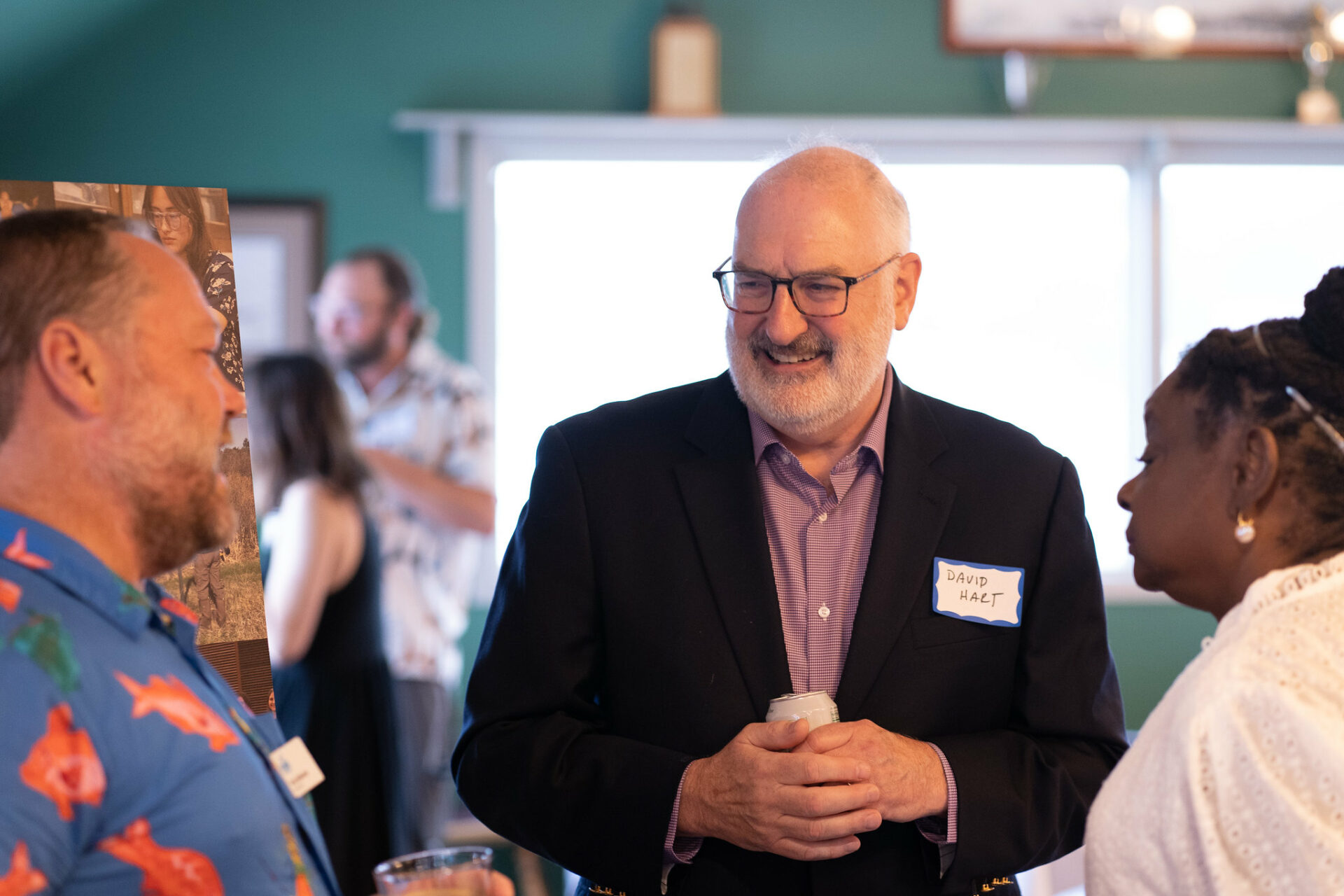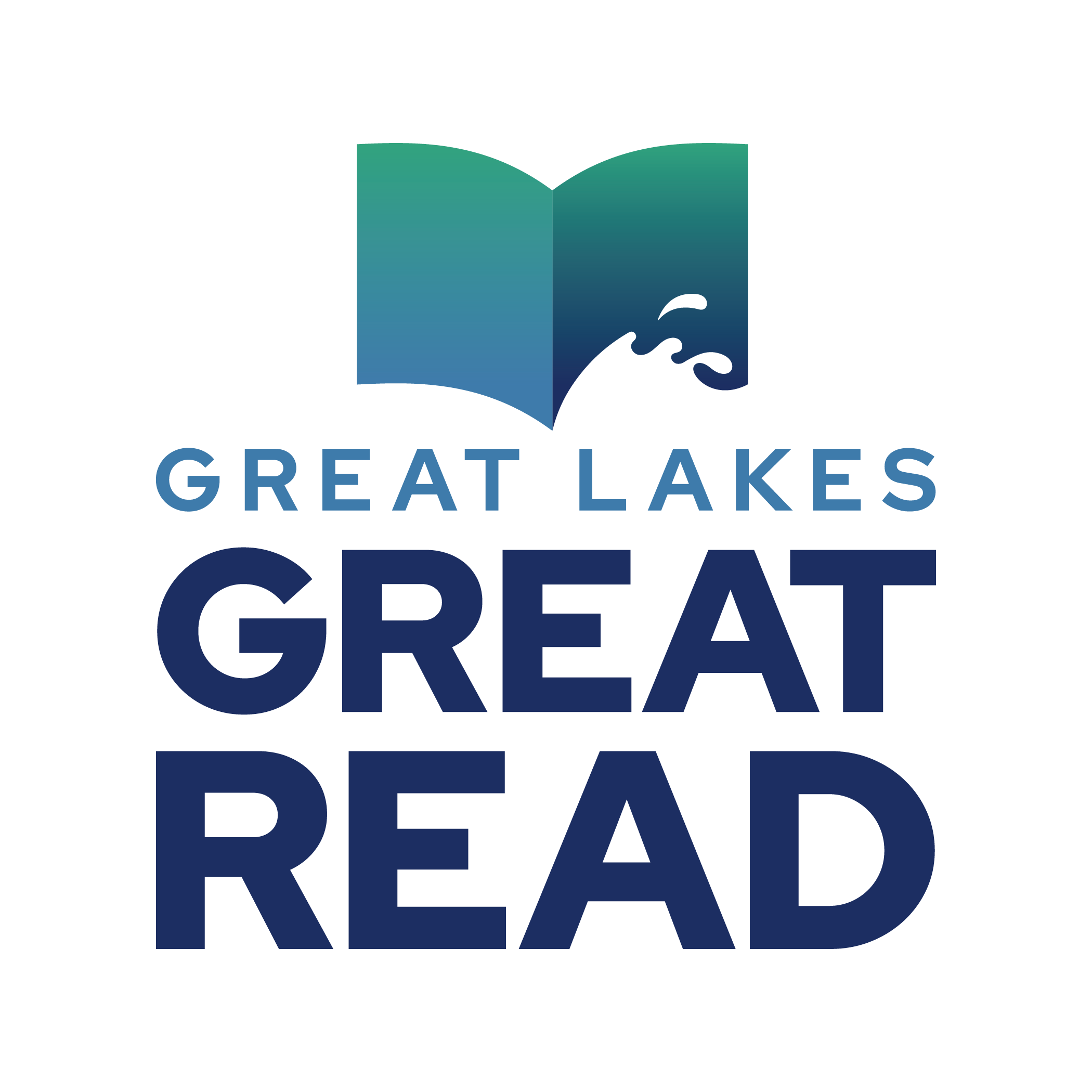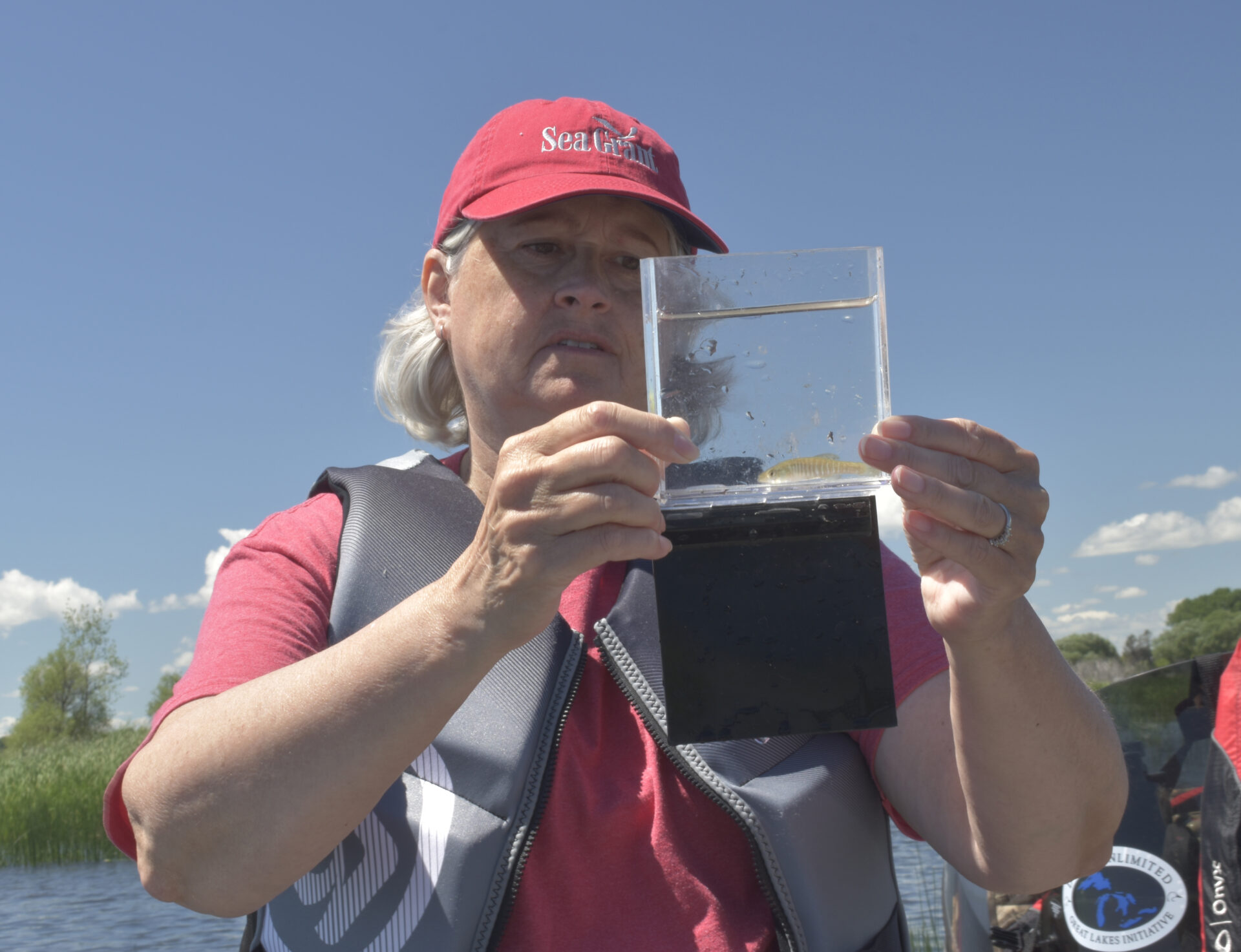The International Association for Great Lakes Research (IAGLR) recently awarded its highest outreach honor to Wisconsin native and De Pere resident Vicky Harris.
Harris received the John R. (Jack) Vallentyne Award at the group’s annual meeting, held in Cornwall, Ontario, May 13-17. The award is named after and dedicated to the late Vallentyne who had a long and distinguished career as a Canadian scientist, but also dedicated decades of work to education and outreach.
The award goes to those (individuals or groups) who have contributed substantially to educating the public and informing policymakers about Great Lakes issues, leading to protection and restoration of great lakes of the world. Deserving candidates can come from any of the world’s Great Lakes, including North American Great Lakes, African Great Lakes, Lake Baikal in Russia, or other large lakes.
“I’m honored and humbled,” said Harris. “The award is especially meaningful to me because Jack Vallentyne had such a big influence on me, early in my career.”
She said a team of scientists from around the Great Lakes had gathered in Green Bay to test the concept of managing the lakes as an ecosystem. She was a new outreach specialist for the University of Wisconsin Sea Grant Institute. “Jack was an influential voice in the region. He believed we could not solve the water quality problems of the Great Lakes by simply managing the water,” Harris said. “He said we needed a more holistic approach, which meant taking air, land, water, wildlife and people into account.”
UW Sea Grant helped to coordinate the project workshops that resulted in the first ecosystem management plan for the Bay. “Some of us have been working toward restoring the Fox River and Green Bay ever since,” she noted. “Without public understanding and support, there can be no political will to restore the single greatest fresh surface water resource in the world. If we are to create a sustainable future for this country and the planet, policymakers must understand the indivisible connections between a sound economy, social well-being and a healthy environment.”
Harris has a reach, influence and list of accomplishments in water quality and habitat restoration that stretches from the shores of Green Bay and Lake Michigan, to the halls of the U.S. EPA and even to foreign countries. Some of her efforts have been—or are ongoing—in the areas of:
- Past coordination of the Remedial Action Plan for the Fox River and southern Green Bay
- Past President of the International Association for Great Lakes Research
- Ongoing restoration of the Cat Island chain and associated coastal wetlands in Green Bay
- Co-chairing the U.S. EPA’s Lake Michigan Lakewide Management Forum
- Outreach for an ongoing National Oceanic and Atmospheric Administration hypoxia assessment in Green Bay
- Serving on the Green Bay working group of the Wisconsin Initiative on Climate Change Impacts
- Sharing information on Great Lakes ecosystem management with resource managers in Sweden, China, Mexico, Tobago, Peru and Ecuador
- The start-up and early success of Wisconsin’s new Clean Marina Program
- Planning and staging three State of Lake Michigan conferences
- Co-chairing and organizing an International Conference on Great Lakes Research
- Chairing the Outreach team for a new plan that the U.S. EPA has called a national model to control nutrient and sediment sources to the Fox River and Green Bay.





